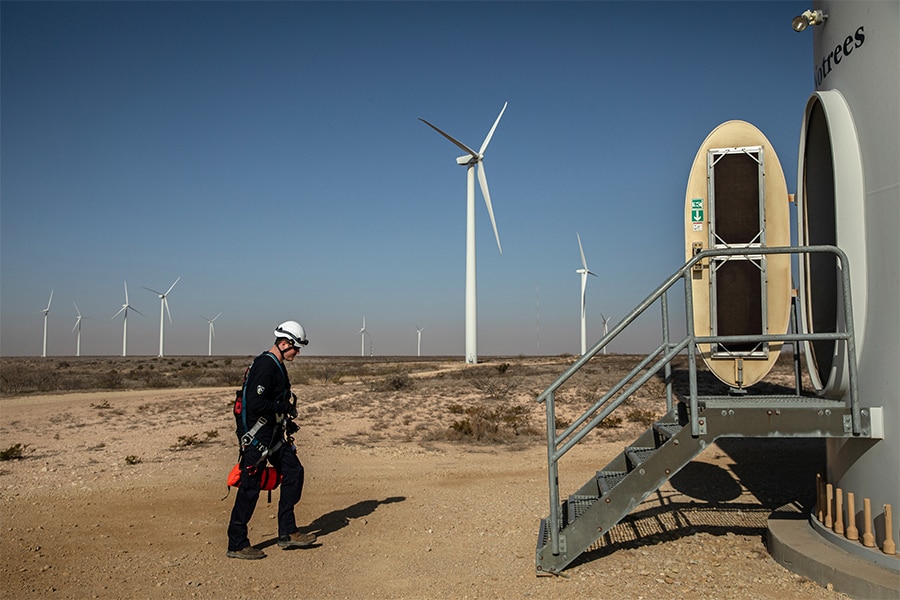
Warren Buffett faces renewed climate change challenge by investors
Investors concerned about climate change have developed an effective playbook for getting companies to set more ambitious goals for reducing greenhouse gas emissions by pressuring, shaming and cajoling executives. But those tactics are not working on Warren Buffett, and critics complain Berkshire's businesses are doing less to cut emissions than similar companies
 Duke Energy’s wind power project near Notrees, Texas, on April 20, 2021. Berkshire Hathaway competitors, including Duke Energy, have set more ambitious climate goals. Image: Tamir Kalifa/The New York Times
Duke Energy’s wind power project near Notrees, Texas, on April 20, 2021. Berkshire Hathaway competitors, including Duke Energy, have set more ambitious climate goals. Image: Tamir Kalifa/The New York Times
Investors concerned about climate change have developed an effective playbook for getting companies to set more ambitious goals for reducing greenhouse gas emissions by pressuring, shaming and cajoling executives.
But those tactics are not working on Warren Buffett and his Berkshire Hathaway conglomerate, which owns energy companies, a railway, insurance companies and other businesses that pump huge amounts of carbon dioxide into the atmosphere. As Buffett holds out, critics complain that Berkshire’s businesses are doing less to cut emissions than similar companies.
Buffett has repeatedly resisted shareholders who want Berkshire to provide detailed climate disclosures that encompass the whole company, not just parts of it, and spend more on sustainability. His stand may seem odd to some people, given that he has at times backed progressive causes, including higher taxes on the wealthy. He has also pledged to give away nearly all his wealth and has given billions to causes embraced by the left.
Buffett has argued that subsidiaries such as Berkshire Hathaway Energy disclose plenty of information about their emissions and are spending billions of dollars on renewable energy.
“I don’t think they read our annual reports,” Buffett said at last year’s meeting, referring to the shareholder group.
©2019 New York Times News Service







